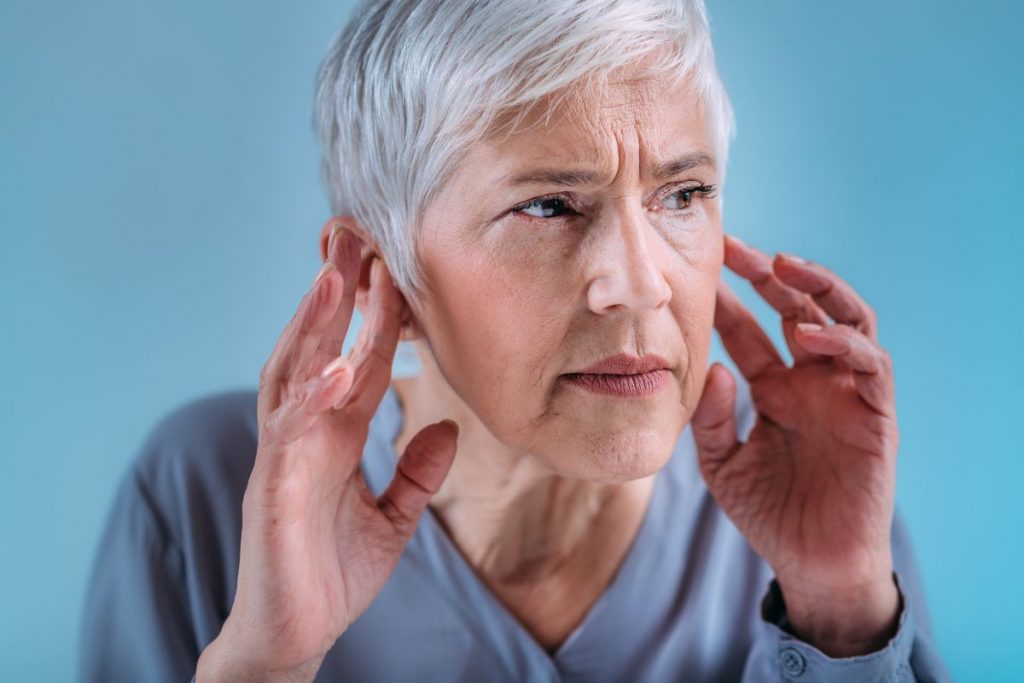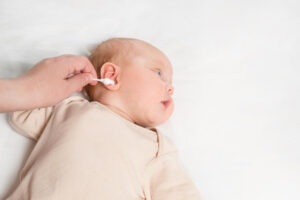Introduction

In this article, Dr Shree Rao talks about the connection between hearing loss and cognitive decline. She is the Best Doctor for Cochlear Implants.
The connection between hearing loss and cognitive decline has become a subject of profound interest, both in the realm of scientific research and in public health discourse. This intricate interplay between auditory health and cognitive function has increasingly captured the attention of experts and the general population, revealing a complex relationship that significantly impacts individuals, especially as they age. The journey to understanding this connection is guided by dedicated professionals such as Dr. Shree Rao, renowned for her expertise in audiology and her unwavering commitment to enhancing the lives of those affected by hearing loss and cognitive challenges.
Traditionally viewed as distinct facets of aging, hearing loss and cognitive decline are now recognized as interconnected elements of overall health. Researchers from various disciplines, including audiology, neurology, and gerontology, have united in the quest to unravel the intricate ties that bind these two domains. Their collaborative efforts have yielded insights that hold profound implications for healthcare professionals, caregivers, and individuals seeking to preserve their cognitive abilities and quality of life.
Types of hearing loss and cognitive impact
The different types of hearing loss and their cognitive impacts are:
- Conductive Hearing Loss – Conductive hearing loss primarily affects the transmission of sound waves through the outer and middle ear. It often results from issues such as earwax blockage, ear infections, or problems with the ear canal or eardrum. While conductive hearing loss is typically treatable, its cognitive consequences can be notable. Individuals with this type of hearing loss may experience difficulty in processing auditory information, which can hinder their cognitive development, especially in children. Language acquisition and comprehension may be compromised, potentially affecting educational outcomes.
- Sensorineural Hearing Loss – Sensorineural hearing loss, characterized by damage to the inner ear or auditory nerve, is often permanent. This type of hearing loss can impact cognition in various ways. Auditory signals, essential for cognitive tasks like attention and memory, are distorted or diminished. Consequently, individuals may struggle with concentration, recall, and the ability to process complex auditory information. This can lead to social withdrawal and, in some cases, cognitive decline associated with isolation.
- Presbycusis (Age-Related Hearing Loss) – Presbycusis is a common age-related hearing loss that affects many older adults. As hearing acuity declines over time, cognitive functions may also be impacted. Individuals with presbycusis may find it challenging to engage in conversations, especially in noisy environments, leading to cognitive fatigue. Furthermore, social isolation, which is more common among older adults with hearing loss, can contribute to cognitive decline and even an increased risk of conditions like dementia.
- Sudden Sensorineural Hearing Loss – Sudden sensorineural hearing loss, an abrupt loss of hearing often of unknown origin, can be a distressing experience. The cognitive effects of this type of hearing loss can include heightened stress and anxiety, which can impact cognitive functioning. Additionally, individuals may struggle to adapt to the sudden changes in their auditory perception, which can affect cognitive tasks that rely on auditory input.
- Mixed Hearing Loss – Mixed hearing loss combines elements of both conductive and sensorineural hearing loss. Its cognitive impact is a blend of the consequences associated with these two types of hearing loss. Cognitive challenges can include difficulties with sound localization, speech discrimination, and the overall cognitive effort required to understand spoken language.
Role of auditory processing in cognitive tasks
Auditory processing plays a vital role in various cognitive functions, contributing to an individual’s overall cognitive abilities. The ability to process and interpret auditory information is fundamental for effective communication, learning, memory, and social interaction. Below are key cognitive tasks where auditory processing is integral:
Auditory processing is essential for understanding spoken language. It involves decoding phonetic elements, syntax, and semantics.
Impaired auditory processing can hinder language comprehension, leading to difficulties in following conversations, reading comprehension, and verbal expression.
Auditory stimuli help individuals allocate and sustain their attention. This is particularly important in scenarios where auditory cues signal changes in the environment.
Challenges in auditory processing may result in decreased attention span, distractibility, and difficulty filtering out irrelevant sounds.
Auditory memory is crucial for retaining and recalling verbal information, such as instructions, lectures, or conversations.
Impaired auditory processing can affect an individual’s ability to remember and recall auditory-based information.
Auditory processing contributes to problem-solving skills, especially in tasks that involve analyzing and interpreting auditory data.
Difficulties in auditory processing may hinder one’s ability to solve problems that rely on auditory cues.
Effective social communication relies on the ability to process auditory cues such as tone of voice, intonation, and subtle verbal nuances.
Impaired auditory processing can lead to misunderstandings, social anxiety, and reduced social engagement.
Auditory working memory is responsible for holding and manipulating auditory information briefly, aiding in tasks like mental arithmetic or following multi-step instructions.
Deficits in auditory processing can impact working memory, affecting complex cognitive tasks.
In educational settings, auditory processing is crucial for listening to lectures, participating in class discussions, and understanding educational content.
Hearing difficulties can significantly affect academic performance and learning outcomes.
Executive functions, including planning, organization, and cognitive flexibility, rely on auditory input for decision-making and problem-solving.
Impaired auditory processing can lead to challenges in executive functioning.
Relationship between age-related hearing loss and cognitive decline
Several studies have demonstrated a strong correlation between the severity of age-related hearing loss and cognitive impairment. Individuals with more profound hearing loss tend to exhibit greater cognitive deficits, including memory decline, reduced attention span, and diminished problem-solving abilities.
Moreover, the cognitive challenges associated with age-related hearing loss extend beyond mere deficits in auditory perception. They encompass broader cognitive domains such as working memory, processing speed, and executive functions. This suggests that hearing impairment can impact a range of cognitive processes critical for daily functioning.
The mechanisms underlying the connection between age-related hearing loss and cognitive decline are still a subject of ongoing research. One prevailing theory posits that the increased cognitive load imposed by efforts to compensate for hearing deficits may overwhelm cognitive resources, leaving fewer mental reserves for other tasks.
Furthermore, social isolation and reduced engagement in mentally stimulating activities, often linked to hearing loss, may contribute to cognitive decline. Hearing loss can lead to withdrawal from social interactions and participation in cognitive-enriching pursuits, potentially accelerating cognitive deterioration.
Hearing loss and cognitive assessment

Assessing the connection between hearing loss and cognitive function involves a comprehensive approach, combining audiological evaluations and cognitive assessments:
- Audiological Evaluation – Includes hearing tests like audiometry and speech audiometry to determine hearing loss severity and its impact on communication.
- Cognitive Screening – Involves cognitive assessment tools like MMSE, MoCA, and the Trail-Making Test to evaluate memory, attention, executive function, and language skills.
- Functional Impact Assessment – Examines how hearing loss affects daily life, social interactions, and cognitive tasks.
- Correlational Analysis – Analyzes the relationship between hearing thresholds and cognitive assessment results.
- Intervention Planning – Develops tailored interventions, such as hearing aids or cognitive rehabilitation, based on assessment findings.
- Longitudinal Monitoring – Includes follow-up assessments to track changes in hearing and cognitive status over time, offering insights into progression and intervention effectiveness.
Preventive measures and interventions
- Protect Your Hearing – Use ear protection in noisy environments, like earplugs at concerts or earmuffs at work.
- Regular Hearing Check-ups – Get routine hearing tests, especially if you’re at risk due to age or noise exposure.
- Healthy Lifestyle – Maintain overall health through a balanced diet, exercise, and managing conditions like diabetes or hypertension.
- Stay Mentally Active – Engage in mental activities like puzzles and reading to keep your mind sharp.
- Manage Medications – Be aware of medication side effects and explore alternatives if they impact hearing or cognition.
- Early Hearing Aid Use – Consider hearing aids or assistive devices as soon as hearing loss is noticed.
- Audiological Support – Seek help from audiologists for rehabilitation, hearing aid fittings, and cognitive training.
- Social Connections – Stay socially engaged for emotional well-being, which can benefit cognitive health.
- Raise Awareness – Promote awareness of the hearing-cognition connection and the importance of early intervention.
- Regular Monitoring – Keep up with follow-up assessments by healthcare professionals to track progress and adjust interventions as needed.
Conclusion
To sum up, the profound link between hearing loss and cognitive decline warrants significant attention in the healthcare landscape. Throughout this discourse, the evidence has consistently underscored the importance of recognizing hearing impairment as a potential catalyst for cognitive deficits. In the pursuit of enhancing the lives of individuals grappling with these intricate challenges, committed professionals like Dr. Shree Rao stand as pillars of expertise and compassionate care. Through a blend of continuous research, timely intervention, and personalized treatment approaches, the healthcare community strives to minimize the impact of hearing loss on cognitive well-being, ultimately elevating the overall quality of life for many.

Why consult EarSurgeon, Dr. Shree Rao?
Dr. Shree Cuddapah Rao is acclaimed as one of the best pediatric ENT specialists in Hyderabad. With 10+ years of deep domain experience in the field of ENT, she is the director at Dr. Rao’s ENT Super Specialty Hospital. She underwent specialized training in Rhinoplasty / Facial Plastic surgery at Singapore General Hospital, Singapore. She also underwent advanced training in cochlear implant surgery under Padmashri Dr. Milind V Kirtane and had a Fellowship in a cochlear implant. Having performed over 200 successful cochlear implants for patients worldwide, Dr. Shree Cuddapah Rao is also the recipient of several prestigious accolades in the domain of ENT. Dr. Shree Rao is one of the best ent doctor in hyderabad, to book an appointment click here.
Are you looking for
then you have landed at right place!







